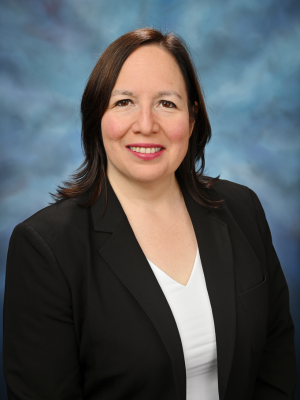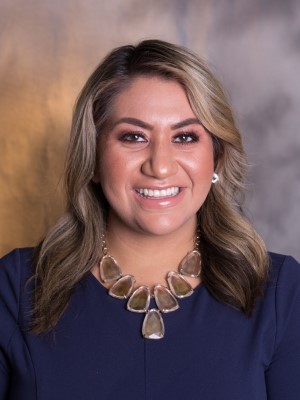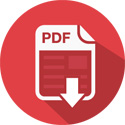2024-15
Encouraging Familial Awareness of Type 1 Diabetes and Appropriate Screening Options to Detect Risk
Sponsored by
Sen. Cristina Castro (IL) and Rep. Alma Hernández (AZ)
Reported to the Caucus by the NHCSL Healthcare Task Force
Rep. Alma Hernández (AZ), Chair
Unanimously ratified by the Caucus on November 23, 2024
WHEREAS, type 1 diabetes is an autoimmune chronic medical condition affecting millions of individuals worldwide;[1] and,
WHEREAS, a type 1 diabetes diagnosis obligates a child or adult diagnosed with the condition to take insulin, utilize a variety of technologies, and see a team of doctors throughout the patient’s lifetime at a significant cost to manage the disease;[2] and,
WHEREAS, type 1 diabetes is now recognized as developing over three stages with a diagnosis of each stage potentially allowing for early interventions to alter the course of this autoimmune disease;[3] and,
WHEREAS, the onset and diagnosis of type 1 diabetes are now somewhat predictable thanks to screening tools, especially for those with a close relative living with type 1 diabetes, permitting patients to avoid or forestall a condition known as diabetic ketoacidosis or DKA;[4] and,
WHEREAS, people at risk for type 1 diabetes are often unaware of the risk factors associated with developing the condition because the majority of those diagnosed with type 1 diabetes have no otherwise identifiable family history with the autoimmune disease with certain common viruses amplifying a person’s risk;[5] and,
WHEREAS, a diagnosis of COVID-19 increases a person’s risk of developing type 1 diabetes later in life;[6] and,
WHEREAS, although Hispanics have less prevalence of type 1 diabetes than non-Hispanic whites historically,[7] the incidence of type 1 diabetes is increasing most rapidly among Hispanics and Asian/Pacific Islanders, with a higher frequency of DKA at diagnosis among them than among non-Hispanic whites;[8] and,
WHEREAS, poor glycemic control, elevated lipids, and other risk factors may put Hispanic youth at risk for future diabetes-related complications like heart attacks, strokes, kidney failure, and vision loss; and,
WHEREAS, type 1 diabetes is increasing in each state across the USA making it essential to promote awareness of type 1 diabetes and its impact on public health; and,
WHEREAS, the dedicated efforts of healthcare professionals, advocacy groups, and individuals living with type 1 diabetes play a significant role in addressing this global health concern; and,
WHEREAS, consistent with established medical guidance, screening for type 1 diabetes autoantibodies should occur in newly diagnosed adults with type 2 or gestational diabetes to rule out a type 1 diabetes diagnosis given the number of American adults diagnosed with type 1 diabetes in their 20s, 30s, and 40s; and,
WHEREAS, some experts advocate broader screening in the general population.[9]
Therefore, be it resolved, that the National Hispanic Caucus of State Legislators (NHCSL) recognizes the importance of educating the public about the signs of type 1 diabetes and the steps families can take to identify the risks of the condition present in a person, including regular check-ups and antibody screening.
BE IT FURTHER RESOLVED, that NHCSL encourages policies and legislative actions in states that support the dissemination of type 1 diabetes screening information materials through schools and elsewhere, commending the efforts of educators, healthcare providers, school nurses, researchers, and advocacy organizations working to improve type 1 diabetes care, prevention, and education.
BE IT FURTHER RESOLVED, that NHCSL encourages all governing boards of school districts to make the type 1 diabetes and related screening informational materials accessible in writing to the parent or guardian of a pupil when the pupil is first enrolled in elementary school and again upon a child’s entry into grade 6.
THE NHCSL HEALTHCARE TASK FORCE, IN ITS MEETING OF OCTOBER 9, 2024, UNANIMOUSLY RECOMMENDED THIS RESOLUTION TO THE EXECUTIVE COMMITTEE FOR APPROVAL. THE EXECUTIVE COMMITTEE UNANIMOUSLY APPROVED THIS RESOLUTION AT ITS MEETING OF OCTOBER 18, 2024.
THE NATIONAL HISPANIC CAUCUS OF STATE LEGISLATORS UNANIMOUSLY RATIFIED THIS RESOLUTION AT ITS ANNUAL MEETING OF NOVEMBER 23, 2024 IN DENVER, COLORADO.
[1] CDC, About Type 1 Diabetes (May 15, 2024).
[2] Ibid.
[3] Ibid.
[4] CDC, About Diabetic Ketoacidosis (May 15, 2024)
[5] Emily K. Sims, Rachel E.J. Besser, Colin Dayan, Cristy Geno Rasmussen, Carla Greenbaum, Kurt J. Griffin, William Hagopian, Mikael Knip, Anna E. Long, Frank Martin, Chantal Mathieu, Marian Rewers, Andrea K. Steck, John M. Wentworth, Stephen S. Rich, Olga Kordonouri, Anette-Gabriele Ziegler, Kevan C. Herold, for the NIDDK Type 1 Diabetes TrialNet Study Group; Screening for Type 1 Diabetes in the General Population: A Status Report and Perspective. Diabetes 1 April 2022; 71 (4): 610–623. https://doi.org/10.2337/dbi20-0054
[6] Francis Collins, How COVID-19 Can Lead to Diabetes (NIH June 8, 2021)
[7] The opposite is true of type 2 diabetes with Hispanics having a higher incidence; and thus a higher total incidence of diabetes.
[8] Emily K. Sims, et al, supra, n 5.
[9] Ibid.



